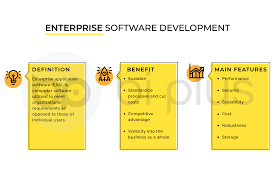Exploring the Role of an AWS Software Engineer in Modern Technology
The Role of an AWS Software Engineer
As technology continues to evolve, the demand for skilled AWS software engineers is on the rise. These professionals play a crucial role in designing, developing, and maintaining applications that run on Amazon Web Services (AWS) cloud infrastructure.
Responsibilities of an AWS Software Engineer
An AWS software engineer is responsible for:
- Architecting and implementing scalable, secure, and reliable applications on the AWS platform.
- Collaborating with cross-functional teams to understand project requirements and deliver solutions that meet business objectives.
- Optimizing application performance and ensuring high availability through effective use of AWS services.
- Monitoring and troubleshooting application issues to maintain system health and performance.
- Staying up-to-date with AWS best practices and emerging technologies to continuously improve the development process.
Skills Required for an AWS Software Engineer
To excel in this role, an AWS software engineer should possess a combination of technical skills and soft skills. Some key skills include:
- Proficiency in programming languages such as Python, Java, or Node.js.
- Experience with cloud computing concepts and services offered by AWS, such as EC2, S3, Lambda, and RDS.
- Knowledge of DevOps practices for automated deployment and continuous integration/continuous delivery (CI/CD).
- Strong problem-solving abilities and attention to detail.
- Excellent communication skills for effective collaboration with team members and stakeholders.
Career Outlook for AWS Software Engineers
The demand for AWS software engineers is expected to continue growing as more businesses migrate their applications to the cloud. Companies across various industries are seeking professionals who can leverage the power of AWS to drive innovation and efficiency in their IT operations.
With the right skills and experience, an AWS software engineer can pursue career opportunities in roles such as cloud architect, solutions architect, or cloud developer. Continuous learning and staying current with industry trends are essential for success in this dynamic field.
In conclusion, becoming an AWS software engineer offers a rewarding career path for individuals passionate about cloud technology and software development. By mastering the necessary skills and staying updated on the latest advancements in the field, professionals can build a successful career in this fast-paced industry.
Top 6 FAQs About Becoming an AWS Software Engineer
- What is the role of an AWS software engineer?
- What skills are required to become an AWS software engineer?
- How does an AWS software engineer collaborate with cross-functional teams?
- What are the key responsibilities of an AWS software engineer in application development?
- How can one stay up-to-date with AWS best practices as a software engineer?
- What career opportunities are available for AWS software engineers?
What is the role of an AWS software engineer?
The role of an AWS software engineer is pivotal in designing, developing, and maintaining applications that operate on Amazon Web Services (AWS) cloud infrastructure. These professionals are tasked with architecting scalable and secure solutions on the AWS platform, collaborating with diverse teams to align technical solutions with business objectives, optimizing application performance for high availability using AWS services, monitoring system health, and resolving issues efficiently. By staying abreast of AWS best practices and emerging technologies, AWS software engineers ensure continuous improvement in application development processes to meet the evolving demands of cloud-based environments effectively.
What skills are required to become an AWS software engineer?
To become an AWS software engineer, a combination of technical expertise and soft skills is essential. Proficiency in programming languages like Python, Java, or Node.js is crucial for developing applications on the AWS platform. Familiarity with cloud computing concepts and AWS services such as EC2, S3, Lambda, and RDS is also necessary. Knowledge of DevOps practices for automated deployment and CI/CD pipelines is valuable for streamlining the development process. Strong problem-solving abilities, attention to detail, and effective communication skills are key attributes that help AWS software engineers succeed in designing scalable and reliable applications on the cloud infrastructure.
How does an AWS software engineer collaborate with cross-functional teams?
Collaboration with cross-functional teams is a key aspect of an AWS software engineer’s role. These professionals work closely with team members from different disciplines, such as developers, system administrators, and business analysts, to understand project requirements and deliver solutions that align with business objectives. AWS software engineers engage in effective communication to ensure that all stakeholders are on the same page regarding project goals and timelines. They contribute their expertise in AWS services and cloud architecture to design scalable and secure applications that meet the needs of the organization. By fostering collaboration and sharing knowledge across teams, AWS software engineers play a vital role in driving successful project outcomes and achieving collective success.
What are the key responsibilities of an AWS software engineer in application development?
In application development, an AWS software engineer holds key responsibilities that include architecting and implementing scalable, secure, and reliable applications on the Amazon Web Services (AWS) platform. They collaborate with cross-functional teams to understand project requirements and deliver solutions that align with business objectives. Additionally, AWS software engineers optimize application performance, ensure high availability through effective use of AWS services, monitor and troubleshoot application issues to maintain system health and performance, and stay updated with AWS best practices and emerging technologies to enhance the development process continually. These responsibilities are crucial in ensuring the successful design and deployment of applications on the AWS cloud infrastructure.
How can one stay up-to-date with AWS best practices as a software engineer?
Staying up-to-date with AWS best practices as a software engineer is essential for maintaining relevance and proficiency in the rapidly evolving cloud computing landscape. To stay current, one can leverage resources such as the official AWS website, which provides documentation, whitepapers, and online training courses. Additionally, joining AWS user groups, attending webinars, and participating in industry conferences can offer valuable insights into the latest trends and best practices. Engaging with the AWS community through forums and social media platforms allows software engineers to exchange knowledge and learn from peers’ experiences. Continuous learning and hands-on practice with AWS services are key to mastering best practices and enhancing skills in cloud application development.
What career opportunities are available for AWS software engineers?
When considering career opportunities for AWS software engineers, a wide range of paths await those with expertise in Amazon Web Services. AWS software engineers can explore roles such as cloud architect, solutions architect, cloud developer, or DevOps engineer. These professionals play a vital role in designing, implementing, and optimizing cloud-based solutions for businesses across various industries. With the increasing adoption of cloud technologies, the demand for skilled AWS software engineers continues to grow. By staying current with AWS best practices and expanding their skill set, individuals in this field can unlock exciting opportunities for career advancement and professional growth.







